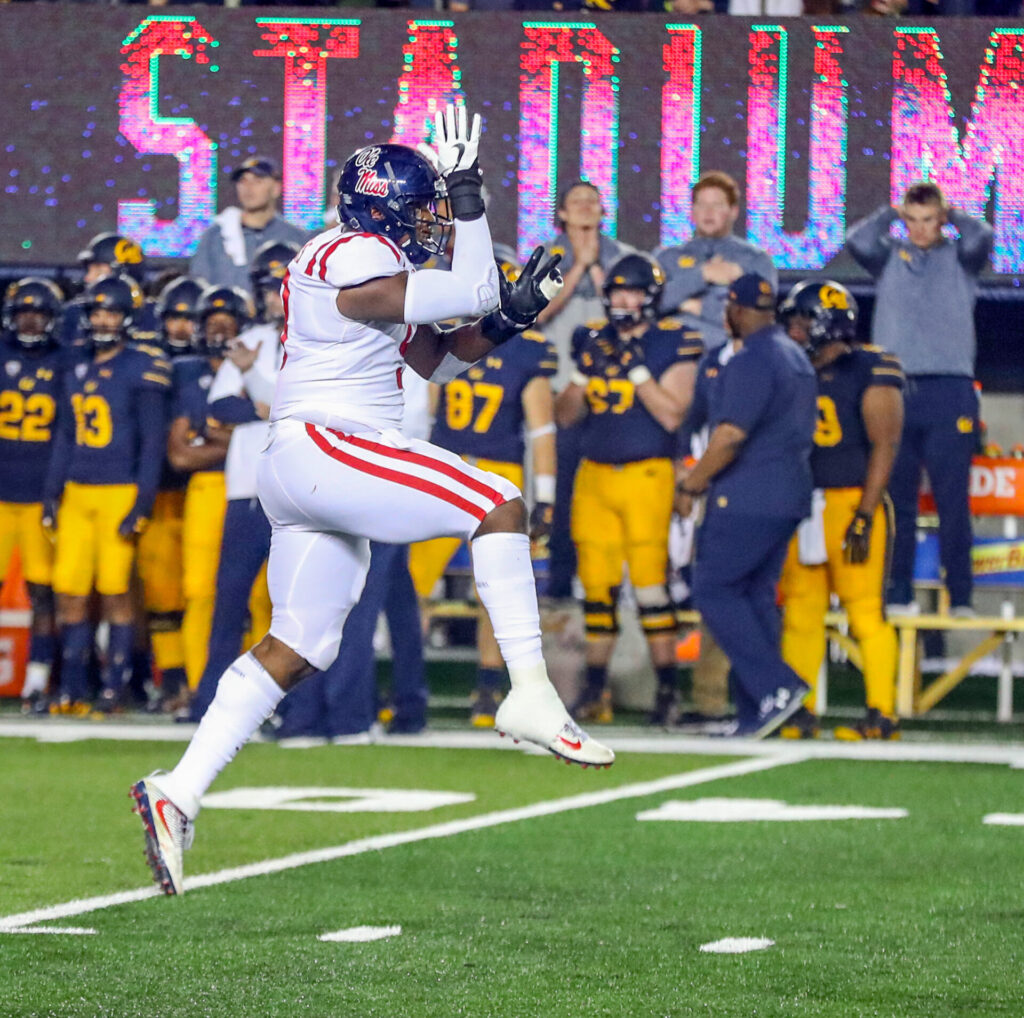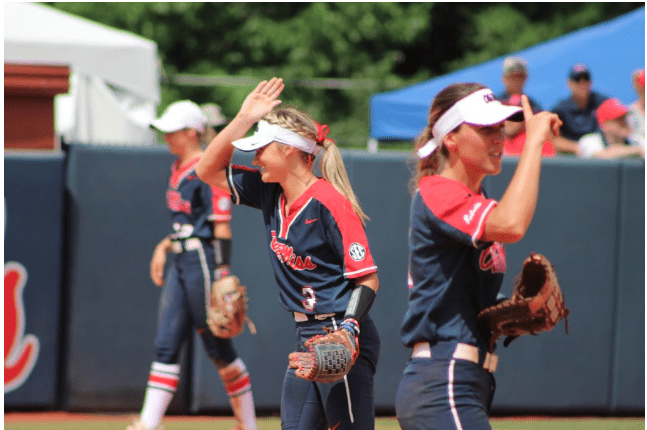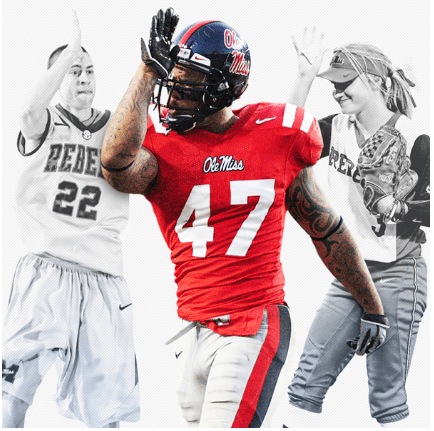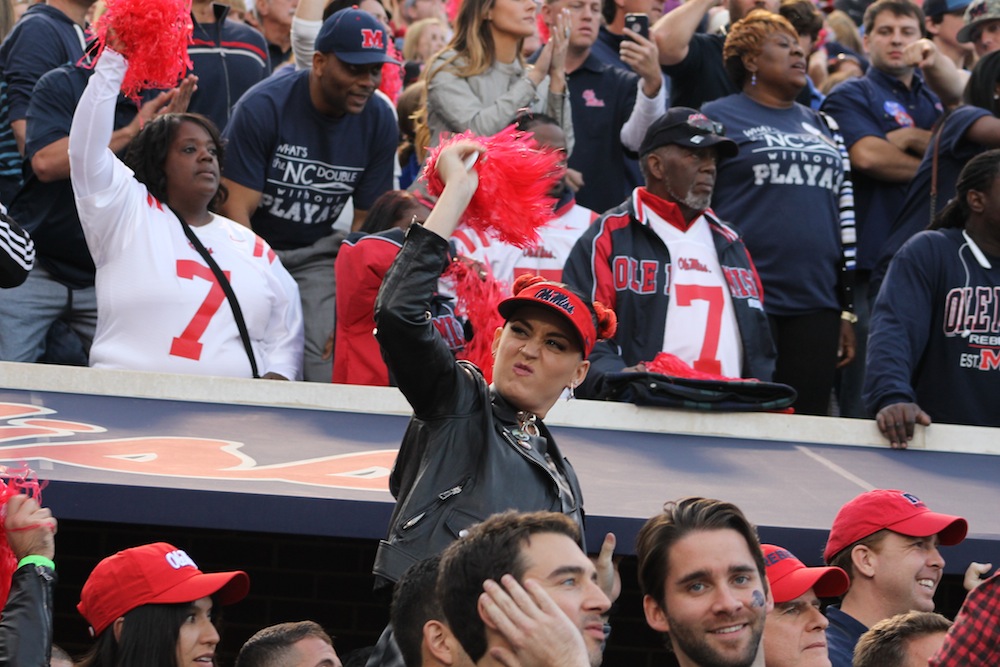

Photo by Joshua McCoy/Ole Miss Athletics
Ole Miss students voted earlier this month to adopt the Landshark as its new mascot. With Rebel alumni and longtime fans divided over the issue, University officials signed off on the decision a few days later, making it official. Will Dunphey, an Ole Miss alumnus in Tampa, Florida, lists four reasons why this was a smart move for the Rebels:

1. Ole Miss athletes created the Landshark.
The tradition began with the late Ole Miss football player Tony Fein in 2008 and has only grown in popularity since. The tradition took hold within the Rebel football team’s defense and quickly spread across all Ole Miss athletics events, from the basketball and volleyball courts to the baseball field and golf course. The Landshark “fins up” gesture symbolizes success and team spirit, and its call at Ole Miss is universal.
At Ole Miss, history and progress have often been at odds. Amongst the clashing waves, the Landshark was born – not from traditions of the past nor from a top-down directive by the school’s administrators, but by the student-athletes themselves.

2. Finding an identity – finally
Ever since the retirement of Colonel Reb, Ole Miss has floundered in the swirling depths of an identity crisis.
The Rebel Black Bear mascot was nothing short of a disaster. Resulting from a student and alumni referendum in 2009 – in which the students largely went for the Landshark – the Black Bear was elected but never fit in on the Ole Miss campus.
Booed and pelted with garbage on the field by its own alumni and students and existing for seven years without a single significant piece of licensed merchandise sold in stores, Rebel was a dead mascot walking. Meanwhile, giant foam shark fins were passed out to students during home games across all sports and waved proudly in the stands. Foam bear paws were nowhere to be found.
Heck, the athletics department even declined to let Lee Corso wear the mascot’s helmet during ESPN’s first-ever College GameDay broadcast in the Grove in 2014, providing him only with a navy-blue UM football helmet. This was the most obvious sign that the administration had never seriously backed Rebel the Black Bear – and never would.
At a university that has so long struggled to find its own identity, the students created one for themselves with the Landshark. And it’s about time. The narrative of Ole Miss has been written by outdated idealists and outside parties for too long. Now, the students are writing it themselves.

3. We are Rebels.
And we’re finally acting like it.
Ole Miss doesn’t fit the traditional mold. And we’re tearing down the mold we inherited. The Landshark is an enormous step in that direction.
The Landshark is a unique mascot, worlds away from the traditional cats, dogs or bears (cough) that prowl sidelines across the country. We aren’t like any other school in the country, so why pretend to be?
Ole Miss finally has its unique calling card, and the Landshark is cool as hell.

4. Change is coming anyway.
The marathon five-year NCAA scandal is wrapping up. The penalties will be doled out to the university (reportedly) some time after the Egg Bowl. Barring some incredible changes on the field, it appears nearly inevitable that Ole Miss will shed its current football coaching staff before 2018.
The Ole Miss football program is likely to enter a dark period in the years to come. Scholarship reductions, recruiting limitations, additional bowl bans – all of these penalties fit snugly in the NCAA’s torture kit and could be brought to bear on an already-struggling program.
As UM moves on, it is only fitting that the team adopt a mascot that symbolizes a new era in Ole Miss football during this transformative period – one that’s near and dear to the hearts of Rebel fans everywhere.
The Rebels can finally get back to playing football. And that’s something we all want.
Ole Miss is ready for the Landshark to take the field in 2018, so the question is…
ARE YOU READY?
Will Dunphey grew up in southern Mississippi and graduated from Ole Miss with a B.A. in Political Science in 2013 and a Master’s of Business Administration (M.B.A.) in 2015. Will currently resides in Tampa, Florida, where he works in the solar energy industry and owns a publishing company, 1AUBooks.
